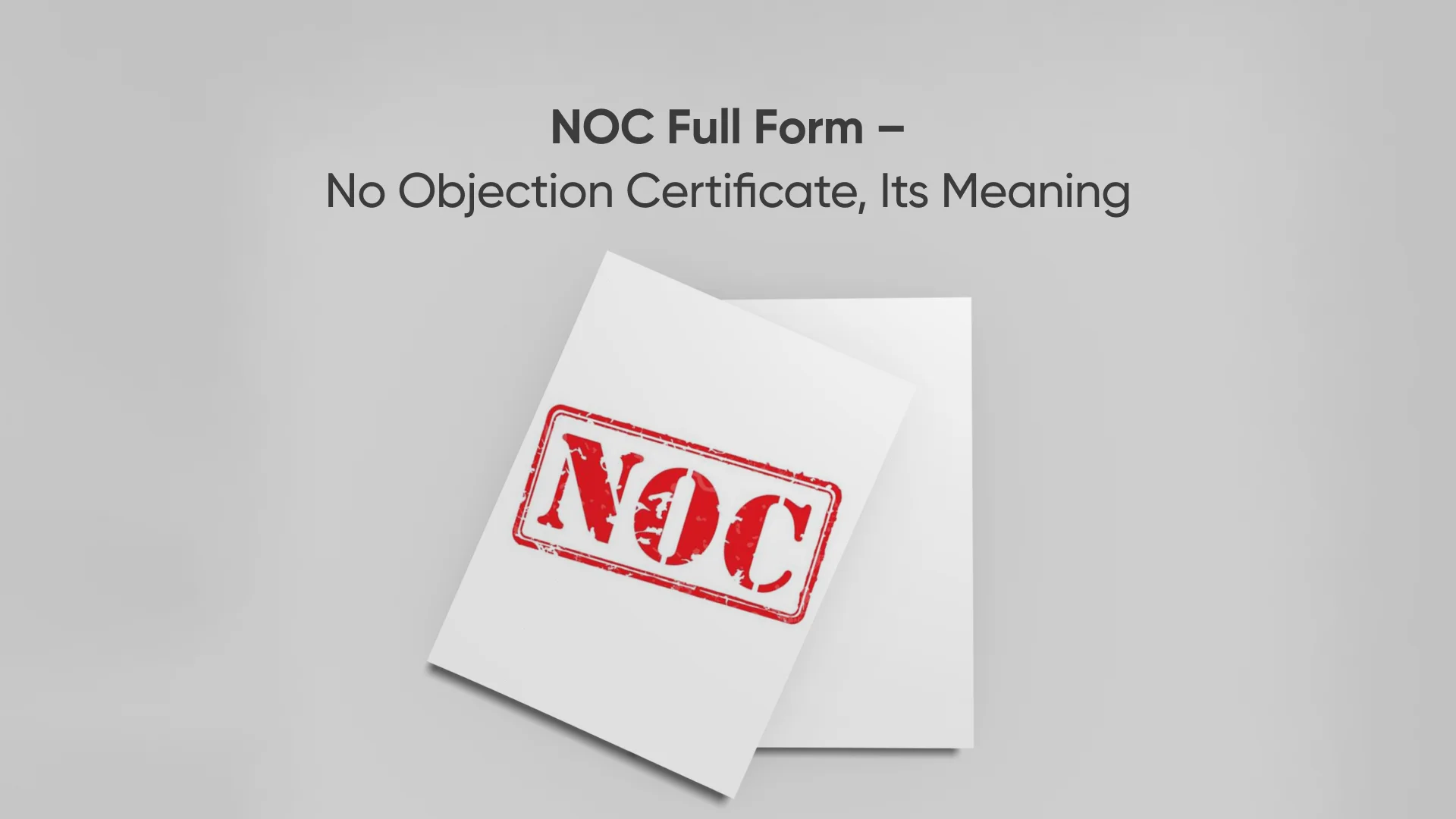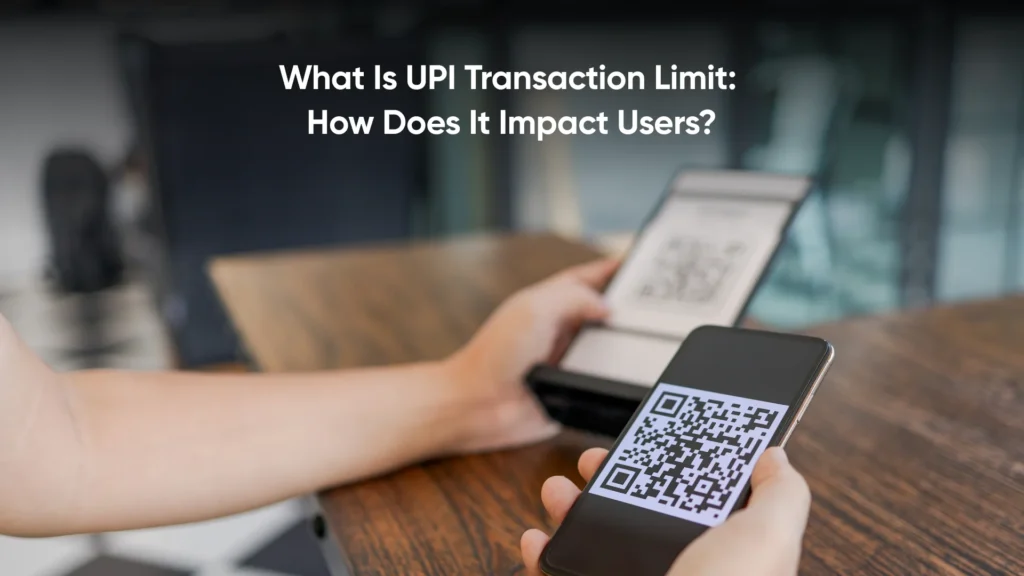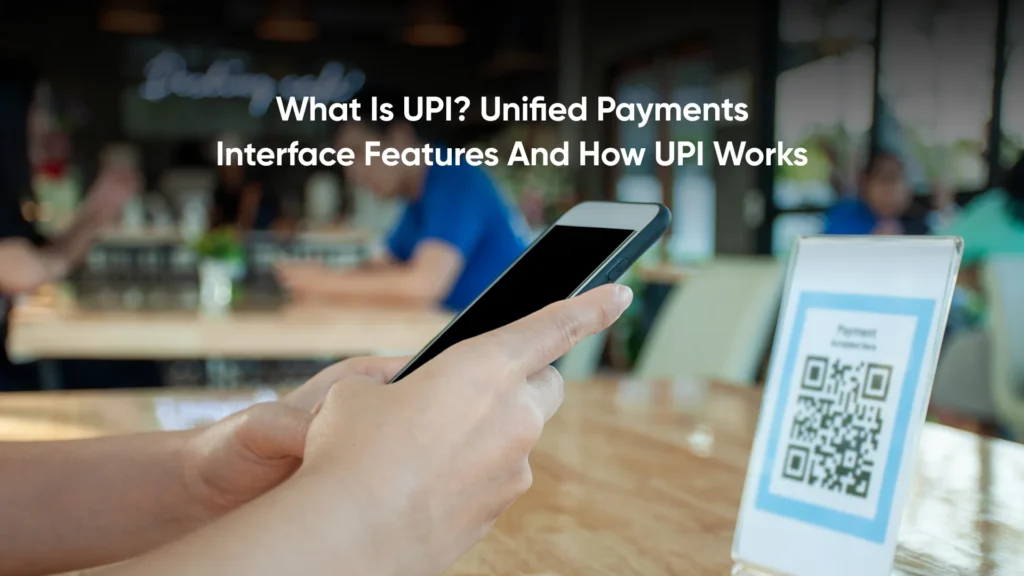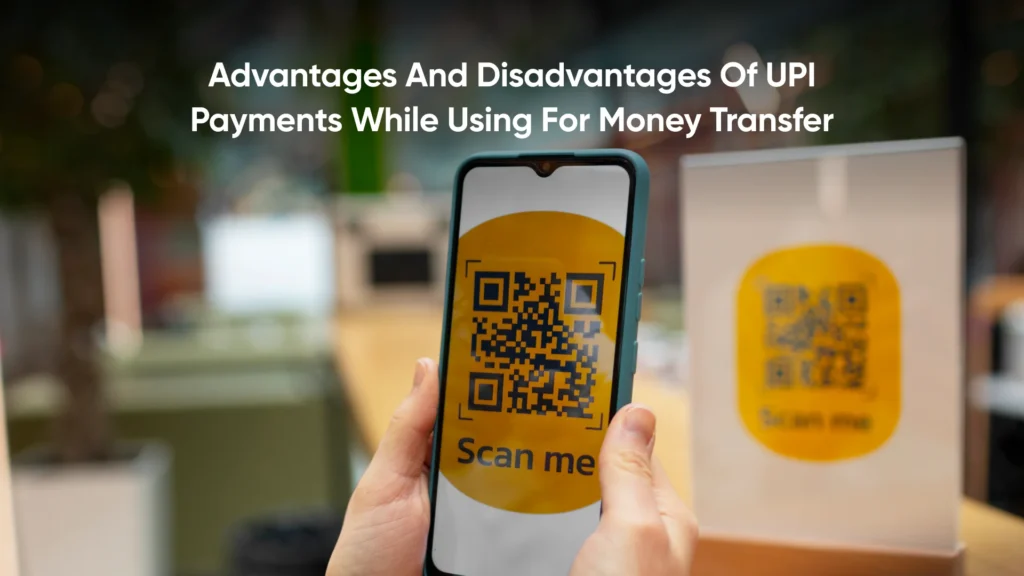NOC Full Form – No objection certificate, its Meaning
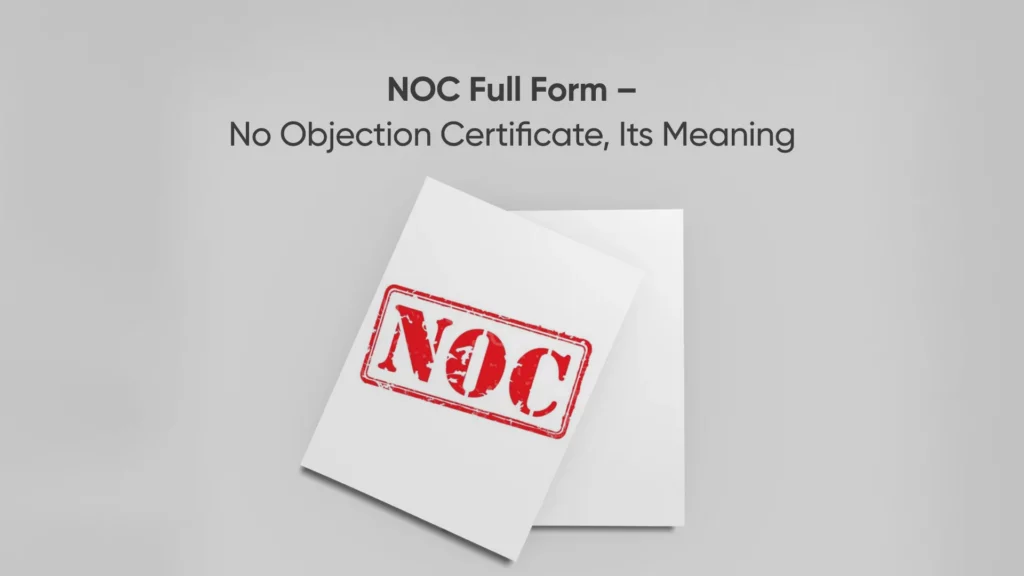
An important document that is vital in various transactions is the No Objection Certificate (NOC). Whether for proof of clearance or any kind of obligation related to the asset or transaction, NOC simplifies the transactions and enhances the credibility of an individual, demonstrating they met all the requirements, which eventually builds trust among parties. Let’s understand the concept of NOC in detail and its benefits:
Table of Contents
ToggleWhat is NOC? (No Objection Certificate)
A legal document issued by an authority, organisation, or individual to confirm that there are no objections to the given matter is called a No Objection Certificate, or NOC. It ensures adherence to legal or regulatory standards by acting as evidence, providing clearance, and implying authorization or consent.
In the case of financial transactions, a NOC can be a proof of document that all dues have been cleared, preventing any future disputes over outstanding payments. For example, when you are closing a loan, a lender issues an NOC to confirm that the borrower has repaid the entire loan amount, allowing the borrower to be free from any further obligations. This document acts as proof that all the liabilities are settled. Similarly, in real estate transactions, an NOC might be required by the housing society or municipal authority to state that there are no objections to the sale or transfer of a property. This ensures that the property is free from legal disputes, making all the transactions smooth. The NOC extends its importance in other fields as well, such as education, and employment, which acts as a form of consent or approval, ensuring compliance with relevant laws and regulations.
Importance of NOC in Financial Transactions
Legal Compliance: Prevents future legal issues by guaranteeing compliance with regulatory regulations.
Clear Title: Assures lenders and buyers that the asset or property is free of liens and other legal issues.
Loan Approvals: Essential for loan approvals, serving as proof that prior debt secured by the property has been settled in full and enabling the approval of new loans
Credibility: Increases the seller’s or borrower’s reputation by demonstrating all necessary clearances and permissions.
Property Ownership: Getting the NOC is necessary to release any asset you have pledged as security for the personal loan, such as property.
Also Read: The Dos and Don’ts of Personal Finance Planning
What Happens When You Don’t Have A Loan NOC Certificate?
A No Objection Certificate (NOC) is important to prevent any legal issues and ensure smooth financial transactions. Without a NOC, obtaining future loans becomes easier as lenders view the absence of this document as a sign indicating unresolved financial obligations. This eventually will impact your creditworthiness and your ability to secure future credit.
If NOC is missing, you may face a higher risk of legal problems arising. Lenders would be reluctant to provide loans without clear evidence of resolved liabilities. Similarly, in real estate transactions, the absence of NOC can cause complications. If you decide to sell or transfer your property, the buyer may face difficulties securing a loan against it.
Therefore, failing to obtain a loan NOC can have detrimental effects on your financial operations. It can lead to legal and financial issues, impacting your ability to engage in future transactions smoothly. Ensuring you have a NOC for every loan settlement is crucial for maintaining financial health and credibility.
How to get a No Objection Certificate?
To get a No Objection Certificate, a few steps need to be followed:
Repayment: Make sure that you have paid the entire loan amount and any charges that are pending,
Reach out to your Financial Institution: Contact your loan provider and ask them for Loan NOC.
Documents Submission: You need to submit any required documents to get NOC, such as a loan closure letter and receipt.
Verification: Make sure all formalities are complete and your lender may try to verify for the last time before giving you the NOC.
NOC Issued: Once the verification is done, the financial institution will issue the No Objection Certificate, which states you cleared off the entire loan.
Also Read: How to Choose Best Personal Loan Lender – Top 8 Reasons
Documents Required for NOC Application
When applying for a No Objection Certificate (NOC), here’s a general list of documents that may be needed:
Identification Proof (ID card, passport, etc.): Aadhar card, voter’s ID, Driver’s License, etc
Property or Asset Details: Utility bills, Aadhar card, etc.
Any specific forms or affidavits as required by the issuing authority
Loans that Require an NOC Letter
A No Objection Certificate (NOC) is required for a few loan types. It is usually required for instant personal loans (for example, urgent personal loans up to Rs.500000), mortgages, and auto loans. The financial institution often gives a NOC which indicates that the full loan amount has been closed by you.
An NOC is required for car loans to sell or otherwise transfer ownership of the vehicle. It verifies that the loan has been paid off in full, and you typically have to submit the car’s insurance documentation and registration.
A NOC is necessary for mortgages as well when you wish to sell the property. It declares that the loan secured by the asset has been paid off. Usually, you’ll need to provide paperwork, such as tax receipts and the sale deed for the home.
Even Instant Personal Loans may require a NOC if you’re closing the loan early or transferring it. This certificate assures that all loan-related payments are complete.
Getting an NOC ensures smooth transactions and clarifies that all financial obligations are met. Always check with your lender for specific requirements for obtaining an NOC for your loan.
Advantages of Obtaining an NOC in loan
A NOC in loan, or No Objection Certificate, comes with a certain benefit. Here’s why you should obtain an NOC letter:
Title: Since an NOC indicates the loan’s complete repayment, it helps you establish a clear title for your possessions.
Smooth Transactions: An NOC makes the process of selling or transferring your property easier and guarantees a smooth transaction.
Credit Report: A No Objection Certificate (NOC) improves your credit record by demonstrating your financial habits and supporting future loan approvals.
Acts as Legal Safeguard: It prevents any future disputes regarding the loan and offers security legally.
Official Document: Having a NOC states that your financial obligations are officially settled and brings peace of mind.
Conclusion:
To sum up, a No Objection Certificate (NOC) is crucial in a lot of situations when official approval or permission is needed. A NOC is an essential document that certifies the issuing authority has no objections to the specific action or decision being done by the applicant, regardless of whether it is related to employment, real estate, or finance. Furthermore, NOCs are essential in financial transactions like loan transfers and closures since they reassure lenders and borrowers alike that their financial commitments have been met. Overall, a NOC in loan is a crucial document in administrative proceedings because of its objective, which is straightforward and protects the interests of all parties while simplifying administrative procedures.
Frequently Asked Questions
A No Objection Certificate (NOC) is a document issued by an authority to approve actions such as closing loans, transferring property, or changing jobs. It confirms their agreement with these activities.
When someone is doing things like selling real estate, moving jobs, transferring car ownership, or closing loans, they usually need a NOC. NOCs are issued by particular requirements by employers, financial institutions, and other pertinent authorities.
You can get in touch with the issuing authority directly to find out the status of your NOC. They can give you information on whether your application has been reviewed.
The validity of an NOC varies depending on its purpose and the issuing authority’s policies.
Yes, many authorities and institutions now offer the option to download NOCs online once they are issued. You may need to log in to a portal or use a specific application process provided by the issuing authority.
The charges for obtaining an NOC can vary based on the type of certificate and the issuing authority’s policies. Some NOCs may be issued free of charge, while others may involve nominal fees to cover administrative costs.
Rules for NOCs can differ depending on the purpose and jurisdiction. Generally, they outline the process for application, required documents, fees (if any), validity period, and conditions under which the NOC is issued or revoked.
Usually, you have to submit an application letter to the issuing authority along with any necessary documents to get the original NOC. They will give you the original document confirming their clearance or approval after it has been processed.
You can get a copy of your NOC from the granting authority if you need one. Depending on their protocols, they could provide it online, by mail, or in person.
If your NOC is lost, you should immediately contact the issuing authority and request a duplicate copy. You may need to provide identification and possibly pay a fee for the issuance of a duplicate NOC.
